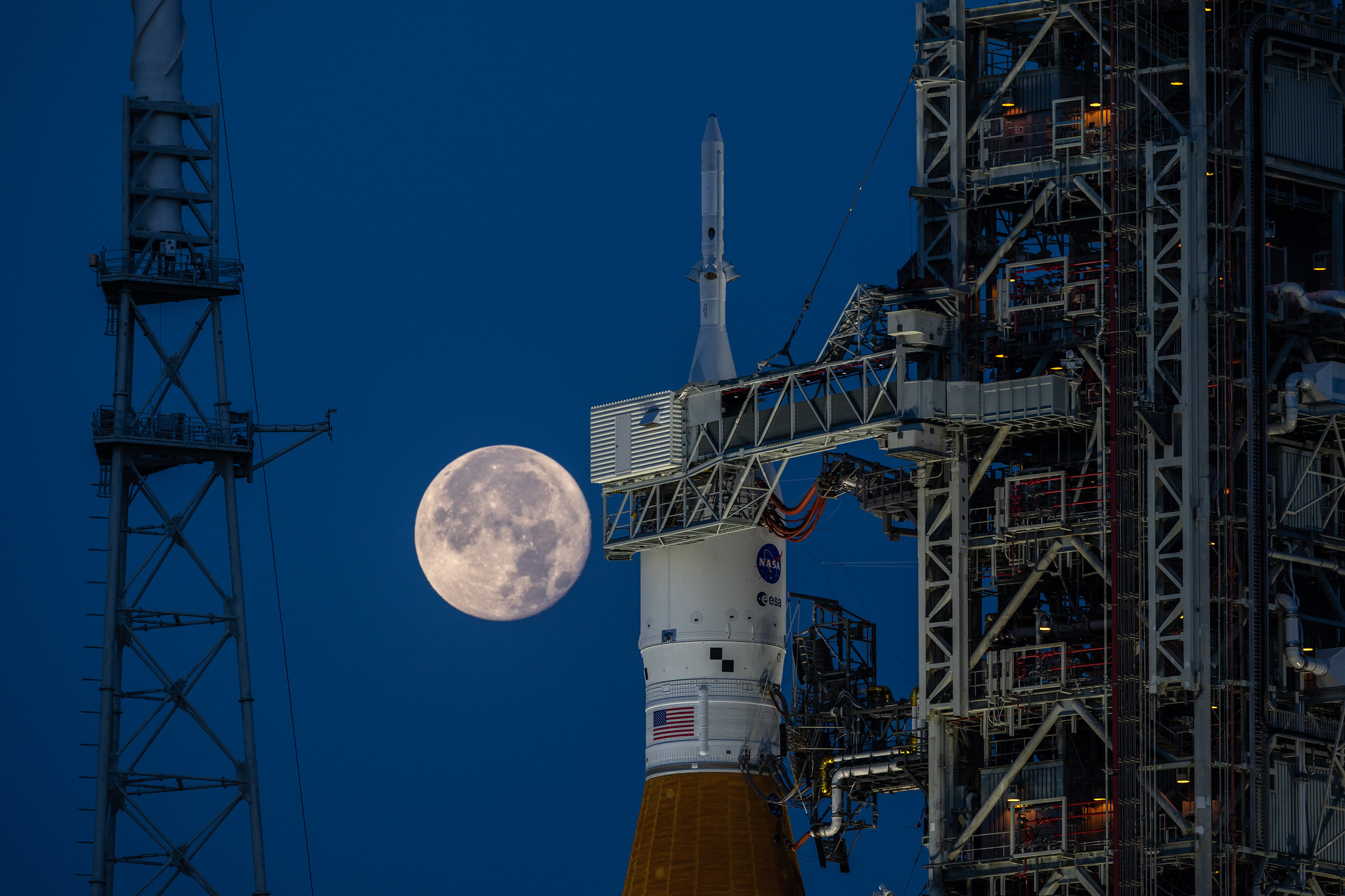NASA will hold a trio of media teleconferences the week of Aug. 14 to preview the science and technology payloads that will fly as part of the agency’s Artemis I flight test. NASA also will provide livestream coverage of Artemis I’s move to the launch pad ahead of its targeted no earlier than Monday Aug. 29 liftoff.
Artemis I is an uncrewed flight test, the first in a series of increasingly complex missions to the Moon. Through Artemis, NASA will land the first woman and the first person of color on the Moon, paving the way for a long-term lunar presence and serving as a steppingstone to send astronauts to Mars.
Ten shoebox-size secondary payloads, called CubeSats, are hitching a ride to space on Artemis I’s Space Launch System (SLS) rocket, and several other investigations are flying inside the Orion spacecraft during the flight test. Each of the payloads will perform science and technology experiments in deep space, expanding understanding of lunar science, technology developments, and deep space radiation.
Audio of all three briefings will livestream on NASA’s website. The briefings include (all times Eastern):
Monday, Aug. 15
5 p.m. – Lunar science payloads teleconference with the following participants:
- Jacob Bleacher, NASA chief exploration scientist
- Craig Hardgrove, principal investigator, LunaH-Map, Arizona State University
- Tatsuaki Hashimoto, project manager for OMOTENASHI, Japan Aerospace Exploration Agency (JAXA)
- Ryu Funase, project manager for EQUULEUS, JAXA
- Ben Malphrus, NASA principal investigator, Lunar IceCube
- Joseph Shoer, architect for Small Sat missions, Lockheed Martin
Tuesday, Aug. 16
Noon – Technology demonstration and solar system science payloads teleconference with the following participants:
- Patrick Troutman, strategy and architectures liaison for NASA’s Moon to Mars Architecture Development Office
- Dustin Gohmert, Orion crew survival systems project manager, NASA’s Johnson Space Center
- Raffaele Mugnuolo, ArgoMoon program manager, Italian Space Agency
- Rob Chambers, director of commercial civil space strategy, Lockheed Martin
- Wesley Faler, team lead, Team Miles
- Julie Castillo-Rogez, NASA principal science investigator, NEAScout, NASA/JPL/Caltech
- Les Johnson, NASA principal technology investigator, NEAScout, NASA’s Marshall Space Flight Center
Wednesday, Aug. 17
Noon – Radiation secondary payloads teleconference with the following participants:
- Ramona Gaza, MARE science team lead, NASA’s Johnson Space Center
- Thomas Berger, Helga and Zohar principal investigator, German Aerospace Center
- Oren Milstein, chief executive officer, StemRad
- Ye Zhang, plant biology program scientist, NASA Biological and Physical Sciences
- Sergio Santa Maria, BioSentinel lead scientist, NASA’s Ames Research Center
- Mihir I. Desai, CuSP principal investigator, Southwest Research Institute (SwRI)
To participate by phone, media must send their full name, media affiliation, email address, and phone number no later than two hours prior to the start of each event to: corinne.m.edmiston@nasa.gov.
The agency is targeting Thursday, Aug. 18 to roll the Space Launch System and Orion spacecraft to NASA Kennedy Space Center’s Launch Pad 39B in Florida and will provide a live stream on the NASA Kennedy You Tube channel beginning at 6 p.m.
View information about the technology and science payloads on Artemis I:
-end-
Rachel Kraft
Headquarters, Washington
202-358-1100
rachel.h.kraft@nasa.gov
Corinne Edmiston
Marshall Space Flight Center, Huntsville, Ala.
256-975-6798
corinne.m.edmiston@nasa.gov



























